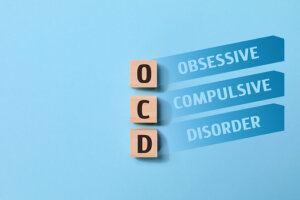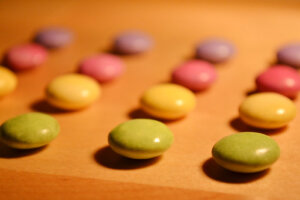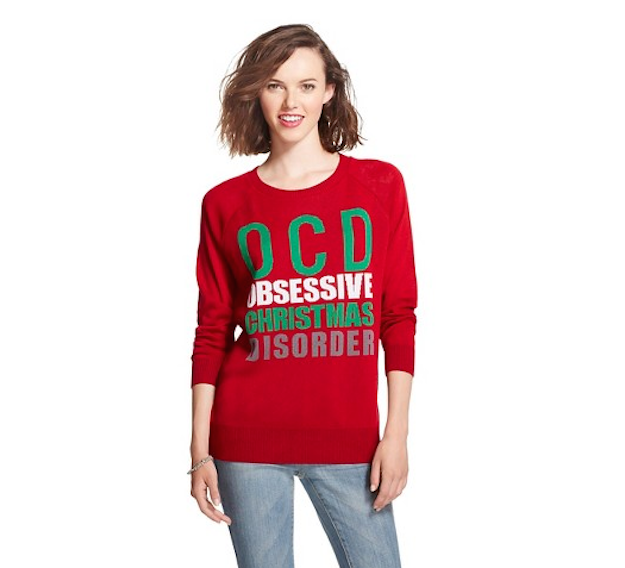
By: Jernej Furman
OCD affects 2.5 million adults in the United States alone. (U.S. Department of Health and Human Services, 2020)
What is OCD, actually?
Obsessive compulsive disorder is a long lasting mental health disorder that is characterized by recurring thoughts and ritualistic or repetitive behaviors (U.S. Department of Health and Human Services, 2020). These thoughts and behaviors are persistent and can disrupt activities of daily life. OCD is characterized by obsessions, and compulsions which can affect any age, at any point in life.
What are obsessions?
The International OCD Foundation explains obsessions to be intrusive and aggressive thoughts or images that can repeat over and over again and are completely out of their control. Someone with OCD does not want these thoughts or images, and can often find them triggering. These obsessions can become so intense that it interferes with their daily lives and brings on emotions such as fear, disgust or overall uneasiness. Many people will experience intrusive thoughts here and there, but what makes it different from OCD is that those without OCD are able to move on much more quickly from the thoughts or images; rather than these obsessive thoughts being a trigger for intense stress or anxiety.
Obsessions can present themselves in a variety of different ways such as :
- Fear of coming in contact with contaminated substances (germs, urine, COVID-19, chemicals)
- Excessive moral or religious concern
- Fear of being responsible for an extreme accident (house fire, car accident, etc. )
- Concern for evenness / exactness
- Extreme desire to conduct something “perfectly”
- Death or overall existence
- Unwanted thoughts about sex
What are Compulsions?

By: Benjamin Watson
Compulsions are repetitive thoughts or actions that are used in an attempt to provide some relief to their obsessions or attempt to rid them entirely, as explained by the International OCD Foundation. These compulsions may provide temporary relief, but without something more concrete to help, those with OCD continue to turn to compulsions for help. Similar to obsessions, compulsions can be time consuming and get in the way of someone’s daily life.
Common Compulsions include:
- Hand washing excessively
- Counting in a specific pattern
- Checking doors to ensure they are locked
- Arranging in a very specific way that satisfies you or feels “right”
- Walking in a predetermined pattern
- Repeating routine activities
- Repeating activities in multiples because it feels “right” or “safe”
How OCD is diagnosed:
There is no set test that can give a yes or no answer on if someone has OCD. The determination to provide a diagnosis is done by a licensed healthcare provider, therapist, or psychiatrist. This is done after completing a thorough background check of medical and mental history along with any possible symptoms this person may be experiencing. The healthcare provider may use the criteria within the Diagnostic and Statistical Manual of Mental Disorders, 5th Edition (DSM-V). This criteria includes daily obsessions/compulsions that take up more than an hour, not related to another health condition or substance, and cause distress in daily life including activities, work, and relationships (OCD, 2022).
How is OCD treated?
Treatments for OCD range person to person, and can include a variety of different treatments. This can include psychosocial therapy such as cognitive behavioral therapy, habit reversal, as well as implementation of medications (Serotonin reuptake inhibitors or SRIs). Professionals may also suggest lifestyle changes in an attempt to manage stress and anxiety such as sleep schedule, healthy diet, and building a healthy support system. It is important to note that there is no cure for OCD, only treatments to attempt to minimize symptoms to allow those who live with OCD to their fullest capabilities.
What OCD isn’t ….
OCD is not…. A self diagnosed disorder
OCD is not an adjective to describe yourself, nor can it be self diagnosed. As mentioned many people tend to say that because of the desire to be organized and getting annoyed at a mark left on a white board that they are “OCD”. Within the video, it displays the act of someone acting as though they have OCD because of some personality traits, but shows a clear disregard of what someone actually diagnosed with OCD may deal with.
@princessgabz she be like “i’m just really OCD” as if it’s an adjective bruh 😭😭 #pov #NoNuanceNovember #fypシ
OCD is not… a joke
OCD is so often used as an adjective, or noted to be a joking matter. This is done by the general public but also done by massive corporations such as, Target. As seen in this sweater produced by Target just a few years ago referring to OCD as “Obsessive Christmas Disorder” This sweater is assumed to be poking fun of a serious mental health disorder, and comparing it to someone who loves the season of Christmas. The production of this sweater further proves the constant misinterpretation of what OCD is, and how serious it can be.

OCD is not …. “Perfectionism”:
As seen above, the term “OCD” is often loosely used, and understood as only the idea of being organized, and particular, and some may refer to themselves as a “perfectionist”. As seen in this video, a well known public figure is describing her preference of organization within her kitchen as OCD, or as she calls it KLHO-C-D. She has created a new term of her name combined with OCD because she is very particular when placing items in her pantry. Although she may be very particular, and neat, she is missing so much more to the disorder, and does not fully comprehend the disorder as a whole.
What does this all mean?
OCD is a serious anxiety disorder that should not be taken lightly. It can be debilitating to someone’s daily life, and is not a joking matter. You can help by educating yourself on what OCD really is, and getting a better understanding of the disorder and the many different aspects of it. Think about different ways to describe yourself moving forward in an attempt to remove the phrase “I am so OCD” from the general vocabulary of so many. OCD is no joke, and should not be taken as so.
For further information on common misconceptions surrounding OCD, and the correct information regarding those areas check out this TED talk!
References:
Khlo-C-D: Cookie Jars. (2015). YouTube. Retrieved April 22, 2023, from https://youtu.be/UXU2E7BQ7Lg.
McNeal, S. (2015, November 11). People say target is making fun of mental illness with one of
its holiday sweaters. BuzzFeed News. Retrieved April 22, 2023, from https://www.buzzfeednews.com/article/stephaniemcneal/target-ocd-sweater
OCD (obsessive-compulsive disorder): Symptoms & treatment. Cleveland Clinic. (2022). https://my.clevelandclinic.org/health/diseases/9490-ocd-obsessive-compulsive-disorder#:~:text=How%20is%20OCD%20diagnosed%3F,%2DV)%20to%20diagnose%20OCD.
Posa, G. [@princessgabz]. (2020, November 20). POV I’m the girl with self-diagnosed OCD in class [Video]. Tik Tok.
TED-Ed. (2015). Debunking the myths of Ocd. TED. Retrieved April 30, 2023, from https://ed.ted.com/lessons/debunking-the-myths-of-ocd-natascha-m-santos.
U.S. Department of Health and Human Services. (2020). Obsessive-compulsive disorder: When unwanted thoughts or repetitive behaviors take over. National Institute of Mental Health. Retrieved April 29, 2023, from https://www.nimh.nih.gov/health/publications/obsessive-compulsive-disorder-when-unwanted-thoughts-take-over
What is OCD?. International OCD Foundation. (2022). https://iocdf.org/about-ocd/

Hello,
I think this blog clears up the false prejudices and misunderstandings that people may think about OCD. In particular, it can insult real patients when people easily talk about their biased and favorite behaviors as OCD. Also, at a time when talking to people about the dangers of mental illness is more important than anything else, I think this blog has sparked an appropriate discussion. Thank you for your effort!